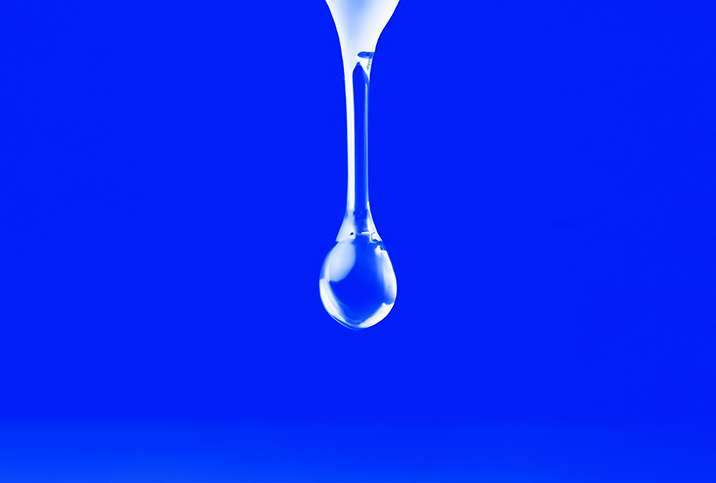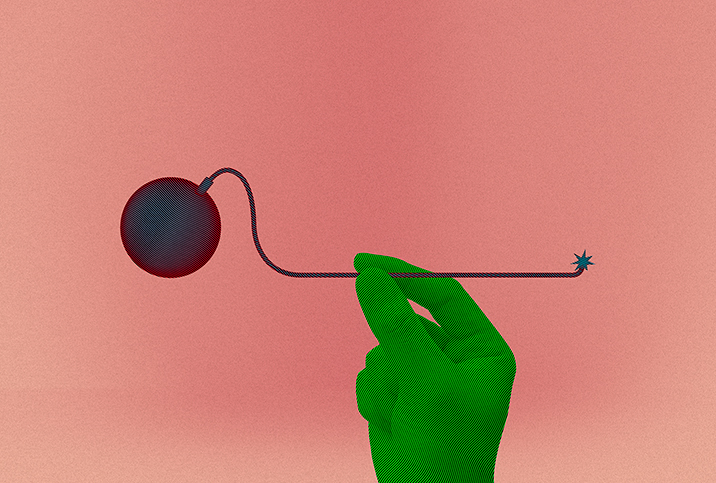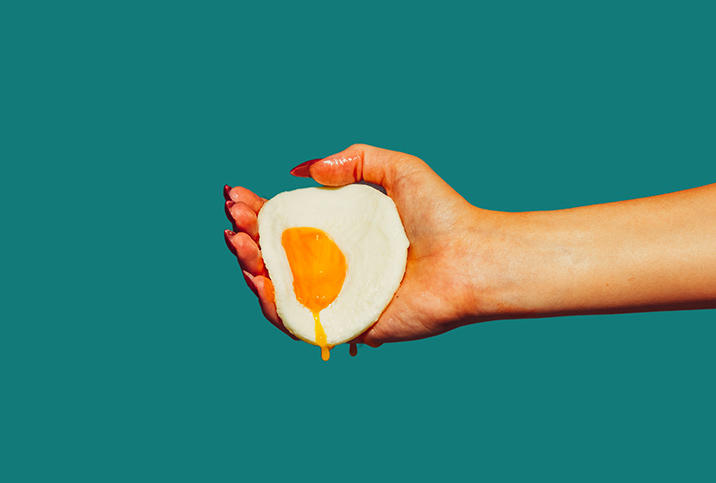What's the Chance Precum Can Cause Pregnancy and Transmit an STD?

Most men have experienced it. Many have wondered what it is. It's the little bit of fluid that can emerge from the penis before orgasm and ejaculation.
Pre-ejaculate is a fluid released from the urethra during sexual arousal. The amount of fluid can vary from a few drops to a teaspoon, which is completely normal. While many people are aware of the substance, aka precum, there isn't much discussion about its purpose and what it can and can't do.
Can precum cause pregnancy? Is there a chance you could get HIV and other sexually transmitted infections or diseases (STIs/STDs)?
What is the purpose of precum?
Michael A. Werner, M.D., a urologist and the medical director and founder of Maze Men's Sexual & Reproductive Health in New York, described pre-ejaculate as a clear, sticky fluid that involuntarily leaks from the penis during arousal and prior to ejaculation. It's made up of proteins and mucus that alkalinize and lubricate the urethra, which creates a healthier climate for the sperm that will soon pass through when a man ejaculates.
The acidity of the environment through which sperm travel must be optimal for sperm survival so they can enter the vagina and reach the cervix, explained Diana Londoño, M.D., a urologist in Glendora, California, and the founder of Physician Coach Support.
Sperm are created in the testes, but pre-ejaculate is not. It is made in accessory glands called the Cowper's glands.
"These glands secrete mucous-like, clear and salty fluid for this purpose, but the fluid in the Cowper's gland itself does not have sperm," Londoño said. "Sperm is produced in the testis and travels through a spaghetti-like tube called the vas deferens that connects the testicle and empties in the urethra."
Pre-ejaculate can act as natural lubrication during foreplay and sex, but in many cases, it won't make a lot of difference since only a small amount of fluid is produced. The use of lube is sometimes necessary and encouraged, especially during penetration.
Does precum contain sperm?
Sperm and pre-ejaculate are not made in the same part of the body, but it's possible for pre-ejaculate fluid to contain sperm, Werner said.
A few explanations are possible. Some researchers believe residual sperm from previous orgasms remain in the urethra and are swept out by the exiting pre-ejaculate fluid. Another theory is that some men naturally leak sperm into their pre-ejaculatory fluid.
"The significance of the explanation is that if the sperm are merely left over from a previous ejaculation, then an abstinence period combined with washouts with urine could prevent sperm from entering the pre-ejaculate," Werner explained. "However, if some men naturally leak sperm into their pre-ejaculate, no matter how significant their washout, they will always have sperm in their pre-ejaculate."
A 2010 study involving 27 male volunteers found 41 percent of the pre-ejaculatory samples contained sperm. In 37 percent of these samples, the sperm were motile, or capable of motion. The volunteers produced subsequent samples, and sperm were detected in either all of an individual's pre-ejaculatory samples or in none of them. This study supports the theory that some men naturally leak sperm into their pre-ejaculate, while others do not.
Can precum cause pregnancy?
If pre-ejaculate can contain sperm, then can it cause pregnancy? The answer is yes, according to Londoño. This is why the withdrawal method—when the penis is withdrawn from the vagina before ejaculation—is often viewed as an unreliable contraception method. Werner thinks the chances of getting pregnant from precome are slim, but it is possible if it enters the vagina.
All but one of the samples in the 2010 study contained fewer than 23 million sperm. That is a low sperm count, so the chance of pregnancy would be considered low as well. However, it's not impossible. Where there is live sperm, there is always a chance of conception.
The withdrawal method is 96 percent effective when used perfectly. However, if the penis is withdrawn too late or in circumstances where sperm is present, the method may be only 80 percent effective. For this reason, if you are trying to avoid pregnancy, you should use another form of protection, such as condoms, birth control pills or an IUD.
Is there a chance you could get an STD from precum?
Pre-ejaculate is a bodily fluid; therefore, it can transmit STIs such as mycoplasma, gonorrhea, chlamydia and HIV. Even the withdrawal method can't prevent you from getting an STI. The best way to prevent infection is to use a condom during intercourse.
What if you have too much or too little precum?
Some men produce copious amounts of precome, which is not an issue. If it's happening outside the bedroom or it's bothering you, speak to your doctor. They can prescribe a medication, such as 5-alpha reductase inhibitors, to control it.
Too little pre-ejaculate usually isn't cause for concern. Some men produce a tiny amount, which can go unnoticed. And while it's less common, some men produce no pre-ejaculate at all.
If you have any concerns, speak to a healthcare professional.


















